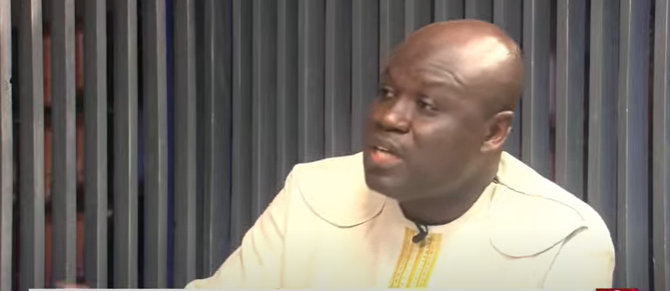The Chief Executive Officer of the Ghana National Chamber of Commerce and Industry, Mark Badu Aboagye, has called for the strengthening of the productive sector as a means to stabilizing the cedi.
According to him, in order to boost exports and thus stabilize the cedi, the productive sector will have to be supported to become competitive and produce competitive products for the international market.
“I think it’s true that we need to strengthen the productive sector. We cannot continue to import the way we’re doing, when we do that we’re killing the economy. We have to be competitive. We should have competitive industries, competitive products and be able to compete on the international market,” he said on JoyNews’ PM Express Business Edition.
He added that imports must be reduced drastically in order to shore up the country’s dollar reserves as the current import regime is draining the economy of much needed dollars.
He explained that while Ghana does experience a trade surplus due to the country exporting more than it imports, dollars accrued from the export industry are not enough to match the dollars lost from importing.
“Now in terms of export I think we’ve been doing well. If you look at the numbers. So if you look at the trade balance, it’s been positive, surplus from 2017 up to this level. But the challenge is that do we receive all the dollars into our economy? That is one question that we have to ask.
We don’t because of some of the agreements that we have signed with some companies, most especially the mining companies. So you see a huge revenue coming from export, but the actual dollar that comes in is less.
“But the import is real. We spend the dollar to import. So all the things that we’re importing we have to pay for it. So we pay more in terms of the goods that we’re importing.”
His comments follow former President John Dramani Mahama's speech on Thursday evening at the UPSA auditorium on Ghana's current economic situation under the theme: Building the Ghana we want.
The former President had suggested as part of solutions to stabilise the cedi that government engaged in an aggressive domestication policy.
"It is estimated that forex outlay for food products for which we have a comparative advantage to produce locally amounts to some $3 billion every year. It is said that out of adversity comes opportunity. Restriction of importation of some of these products, side-by-side with increased local production, is a realistic proposition that we need to begin to consider.
"There must be prioritization and strategic investment in private commercial large-scale production of these commodities. We cannot sustain progress in agricultural production based on only support for small scale producers.
"Government must support large scale commercial agricultural production to achieve food self-sufficiency. We must look at the entire value from production to processing and marketing," he said.
Latest Stories
-
CHAN 2024Q: Ghana’s Black Galaxies held by Nigeria in first-leg tie
22 minutes -
Dr Nduom hopeful defunct GN bank will be restored under Mahama administration
56 minutes -
Bridget Bonnie celebrates NDC Victory, champions hope for women and youth
1 hour -
Shamima Muslim urges youth to lead Ghana’s renewal at 18Plus4NDC anniversary
2 hours -
Akufo-Addo condemns post-election violence, blames NDC
2 hours -
DAMC, Free Food Company, to distribute 10,000 packs of food to street kids
3 hours -
Kwame Boafo Akuffo: Court ruling on re-collation flawed
4 hours -
Samuel Yaw Adusei: The strategist behind NDC’s electoral security in Ashanti region
4 hours -
I’m confident posterity will judge my performance well – Akufo-Addo
4 hours -
Syria’s minorities seek security as country charts new future
5 hours -
Prof. Nana Aba Appiah Amfo re-appointed as Vice-Chancellor of the University of Ghana
5 hours -
German police probe market attack security and warnings
5 hours -
Grief and anger in Magdeburg after Christmas market attack
5 hours -
Baltasar Coin becomes first Ghanaian meme coin to hit DEX Screener at $100K market cap
6 hours -
EC blames re-collation of disputed results on widespread lawlessness by party supporters
6 hours

